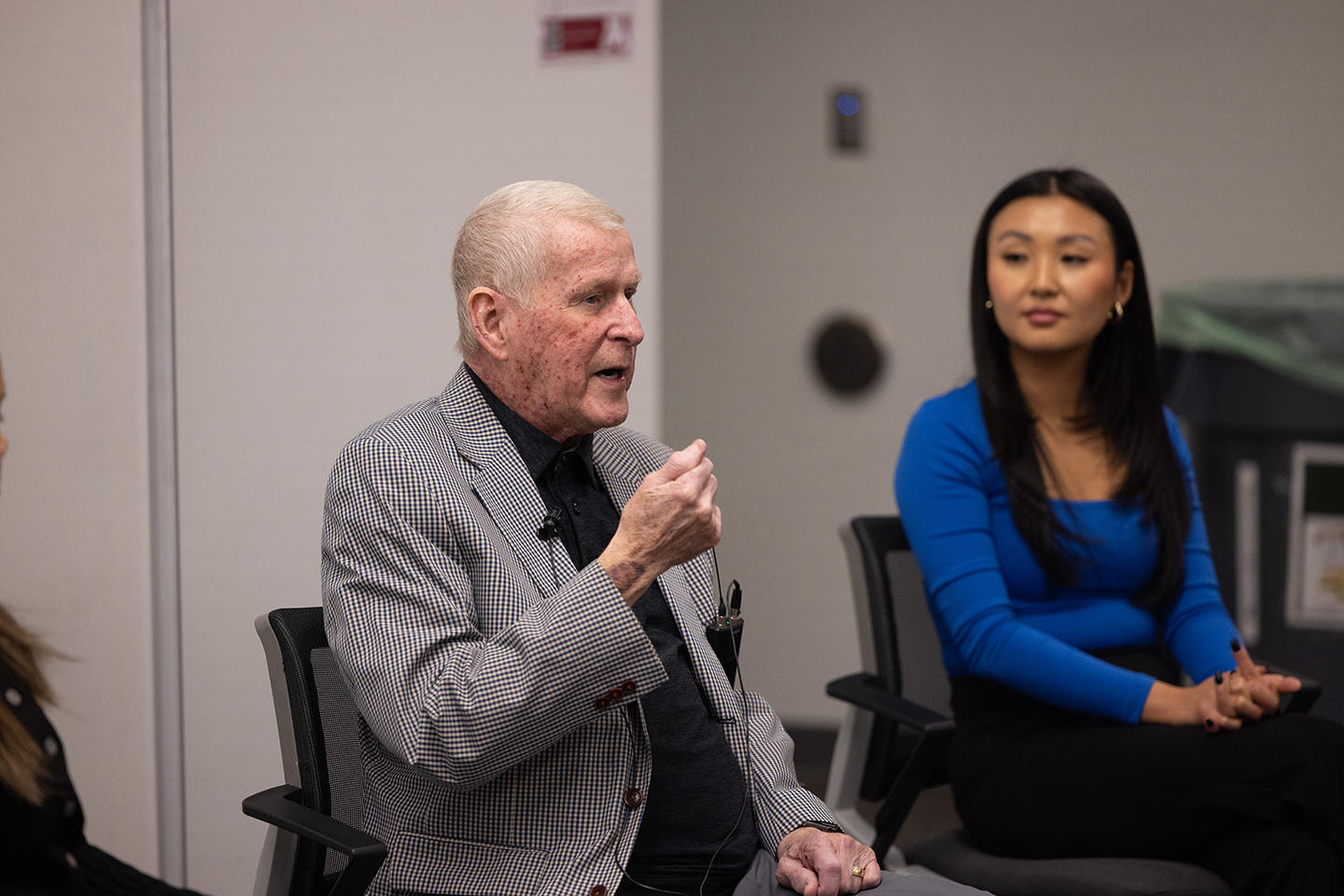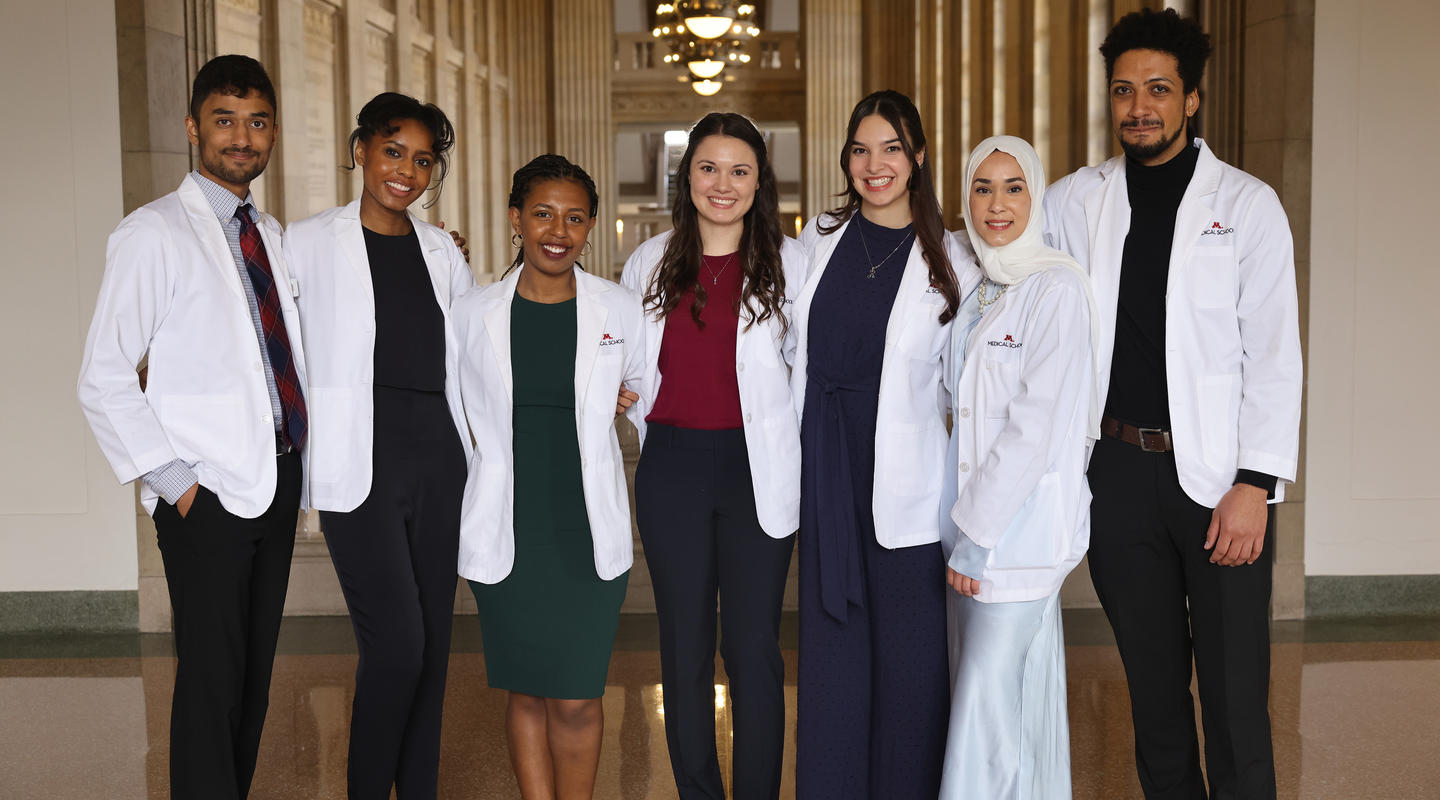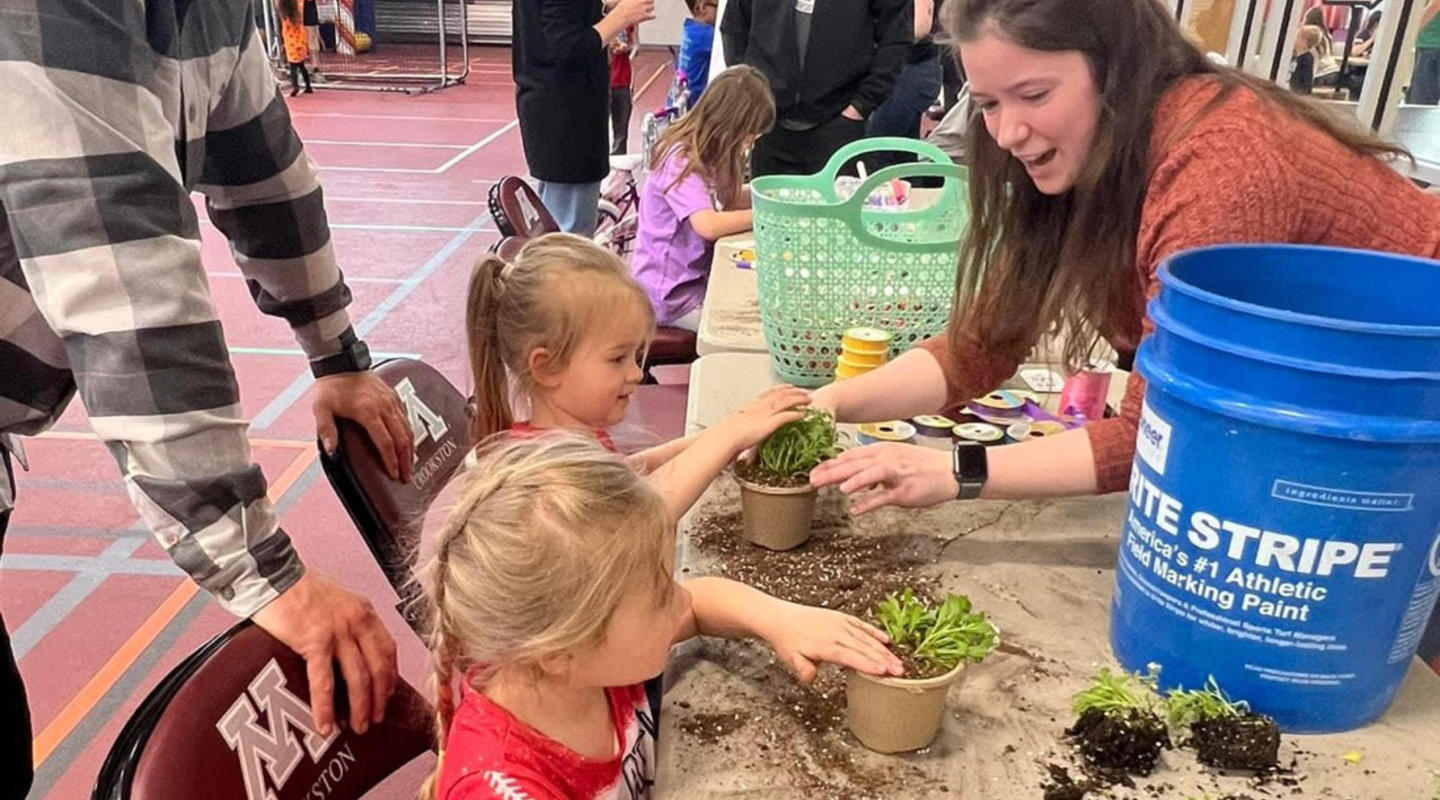
John Schwartz and student Gina Sung at a program last fall celebrating the John N. Schwartz Diversity, Equity, and Inclusion Leadership Speaker Series & Student Group. (Courtesy: School of Public Health)
When John Schwartz was earning his degree in the School of Public Health’s Master of Healthcare Administration (MHA) program in the late 1960s, diversity, equity, and inclusion (DEI) initiatives were not on the radar.
But Schwartz, MHA ’69, who passed away in February of this year, gained an appreciation for such efforts during his long career as a health care administrator. He spent 20 years as an executive at St. Luke’s Medical Center/Aurora Health Care in Milwaukee, then served as a hospital president for 14 years at what became Advocate Health Care in Chicago.
“I got exposed to a lot of cultures in Milwaukee, but even the south side of Milwaukee was nothing like my experience in Chicago,” he said in an interview last fall. “It was the most diverse cultural experience I’ve had in my entire health care career.”
The lessons he learned stuck with him, and Schwartz (along with his husband, Jim) are making sure that today’s MHA students are exposed to them much earlier. Thanks to his continued generosity, the MHA program has designated two new initiatives supported by current funds and an estate gift.
One is the MHA program’s John N. Schwartz Diversity, Equity, and Inclusion Leadership Speaker Series & Student Group. The initiative will boost the program’s DEI plan and allows for students to inform annual programming for DEI objectives.
The other is the Schwartz Institute for Case Studies in Healthcare Management. It will increase the number of cases and simulations used in the MHA program and in health care management education, a critical tool for students to gain experience with issues they will encounter professionally.
Education meets experience
Both initiatives will foster DEI education and tangible practical experiences—benefits Schwartz never had when he was in school. The DEI efforts align with the School of Public Health’s five-year roadmap to embed diversity, equity, inclusion, and antiracism into every aspect of operations, academics, and the student experience.
“This funding is really a step in the right direction,” says Gina Sung, DEI chair for the Class of 2024. “It’s assuring that the program and our students are aligned with being good human beings and compassionate people.”
Schwartz considered it critical for future graduates.
“To be one of the leaders, you have to be able to discern the cultural differences of the people you serve,” he said. “What is acceptable to some populations is offensive to others, and you better know the difference.
“And the same with your staff. Everybody comes with their own biases, including yourself. You have to feel comfortable valuing diversity, not fearing diversity or avoiding diversity. It is extremely complex, and it is extremely challenging.”


